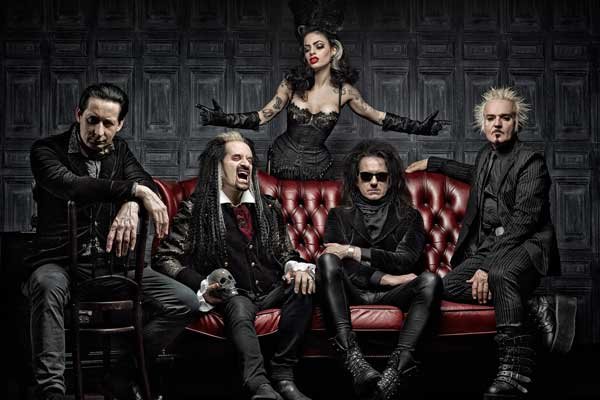Introduction
Goth music is more than just a genre; it’s a cultural movement that has influenced countless bands, fans, and styles. With its eerie melodies and dark, poetic lyrics, goth music remains a powerful force in alternative music scenes worldwide. Let’s take a journey through the most influential goth music bands and explore their lasting impact.
Table of Contents
- Introduction
- What is Goth Music?
- The Origins of Goth Music
- Key Elements of Goth Music
- Pioneering Goth Bands
- Bauhaus
- Siouxsie and the Banshees
- The Cure
- Second-Wave Goth Bands
- Sisters of Mercy
- Clan of Xymox
- Modern Goth Bands
- She Past Away
- Drab Majesty
- How Goth Bands Shaped Music Culture
- Conclusion
- FAQs
What is Goth Music?
Goth music is a subgenre of post-punk that emerged in the late 1970s. It is known for its melancholic, atmospheric sounds, blending haunting vocals, heavy basslines, and ethereal guitar tones. The themes often revolve around introspective subjects like love, death, and existentialism.
The Origins of Goth Music
The roots of goth music can be traced back to the UK in the late 1970s and early 1980s. Emerging from the post-punk scene, goth bands combined punk’s raw energy with darker, more atmospheric elements. This gave birth to a sound that was both haunting and emotionally charged.
Key Elements of Goth Music
Goth music stands out for its distinctive features:
- Atmospheric Soundscapes: Heavy use of reverb, delay, and chorus effects on instruments.
- Deep, Poetic Lyrics: Often exploring themes of sadness, romance, and existential dread.
- Visual Aesthetics: Black clothing, Victorian-inspired styles, and dramatic makeup are often associated with the goth subculture.
Pioneering Goth Bands
Bauhaus
Widely regarded as one of the first true goth bands, Bauhaus set the tone for the genre with their hit “Bela Lugosi’s Dead.” Their music was minimalist yet impactful, laying the foundation for goth music’s future.
Siouxsie and the Banshees
Led by the enigmatic Siouxsie Sioux, this band blended post-punk with gothic tones. Their unique sound and style made them trailblazers in the goth movement, especially with tracks like “Spellbound” and “Cities in Dust.”
The Cure
Though The Cure has dabbled in various genres, their early work in albums like Seventeen Seconds and Faith captured the goth essence perfectly. Their brooding melodies and introspective lyrics are iconic in goth music history.
Second-Wave Goth Bands
Sisters of Mercy
The Sisters of Mercy took the goth sound and made it more accessible. With their deep vocals and pounding drum machines, they became synonymous with the goth rock sound. Their album Floodland is a classic in the goth scene.
Clan of Xymox
Clan of Xymox brought electronic elements into goth music, creating a hybrid of darkwave and goth. Their dreamy, synth-heavy tracks remain popular among fans of the genre today.
Modern Goth Bands
She Past Away
This Turkish band has revitalized goth music for a new generation. With their deep, haunting sound that echoes the classic goth era, She Past Away has garnered a dedicated global following.
Drab Majesty
Known for blending synthwave with goth, Drab Majesty brings a futuristic twist to the genre. Their music is ethereal and melancholic, pushing the boundaries of what goth music can be.
How Goth Bands Shaped Music Culture
Goth bands have influenced not just music but also fashion, film, and art. Their dark aesthetics and introspective themes resonated with people who felt disconnected from mainstream culture. This influence continues to shape alternative scenes today.
Conclusion
From the pioneers like Bauhaus to modern acts like She Past Away, goth music has left an indelible mark on the world of music and culture. With its haunting melodies and emotional depth, it continues to captivate audiences and evolve with time.
FAQs
1. What defines goth music?
Goth music is characterized by dark, atmospheric soundscapes, introspective lyrics, and a melancholic tone, often stemming from post-punk influences.
2. Who was the first goth band?
Bauhaus is often credited as the first goth band, with their 1979 track “Bela Lugosi’s Dead” being seen as a cornerstone of the genre.
3. Are The Cure considered a goth band?
While The Cure has explored various styles, their early albums like Seventeen Seconds and Faith are considered quintessential goth records.
4. What is the difference between goth and darkwave?
Darkwave incorporates more electronic elements, whereas goth tends to stick to traditional rock instruments. However, the two often overlap.
5. Are there any modern goth bands?
Yes, bands like She Past Away and Drab Majesty are examples of modern goth bands that are keeping the genre alive and evolving

